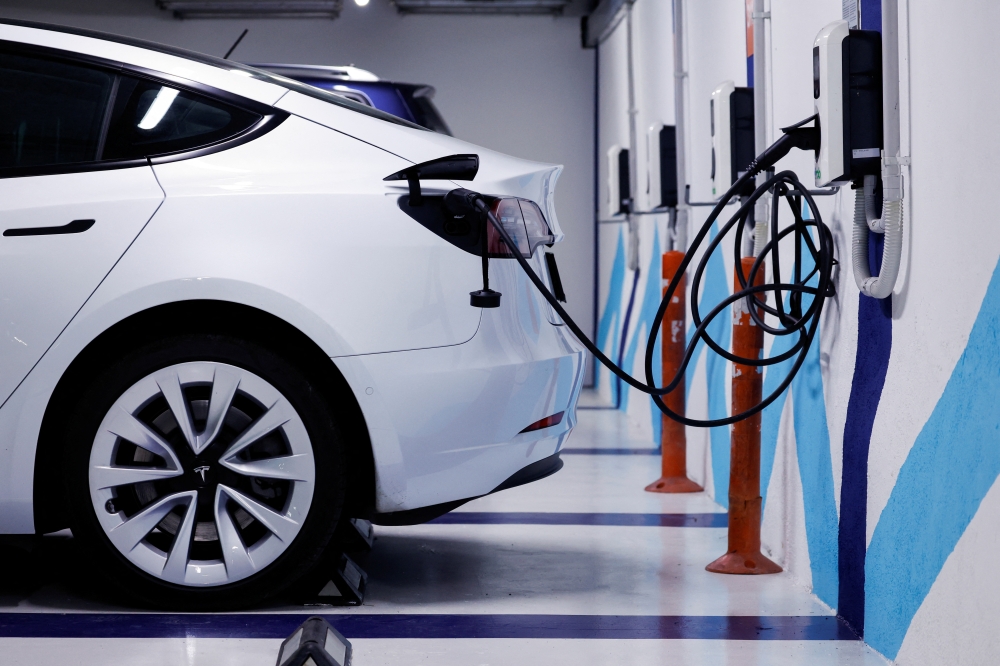

Muscat: Our planet faces a growing challenge – climate change. The transportation sector contributes significantly to overall carbon emissions with the UN putting its contributions at 13% of total global greenhouse gas emissions and 23% of energy-related carbon dioxide emissions. Of these, three-fourths come from road traffic alone. In response, many countries are looking towards electric vehicles (EVs) as a cleaner and more sustainable alternative. Oman is no exception.
Oman is embarking on a transformative journey towards a greener future, with electric vehicles (EVs) serving as the driving force. This ambitious vision hinges on a three-pronged approach: building a robust charging infrastructure, implementing supportive government policies, and fostering strategic partnerships.
Infrastructure Expansion
The Omani Ministry of Transport, Communications and Information Technology (MTCIT) is spearheading the country's EV revolution. One of the key challenges to widespread EV adoption is range anxiety – the fear of running out of power before reaching a charging station. To address this concern, Oman is witnessing a rapid expansion of its EV charging network. Leading the charge is EVO, a prominent provider with an existing network of over 80 stations strategically placed across the country. This foundation will be further strengthened by the government's ambitious target of establishing 300 charging stations by 2025. This rapid growth will significantly alleviate range anxiety, paving the way for a more seamless transition to electric mobility.
While battery-powered EVs are at the forefront, Oman is also exploring innovative solutions to push the boundaries of clean transportation. A noteworthy example is the collaborative study with the Netherlands to investigate the feasibility of a liquid hydrogen corridor. This has the potential to revolutionize long-distance transportation. Imagine a future where heavy-duty trucks and long-haul buses travel on clean hydrogen, significantly reducing emissions and enhancing Oman's position as a leader in clean energy technology. Additionally, Indian EV start-ups like Planet Electric are setting their sights on the region's commercial vehicle market, offering new options for businesses seeking to reduce their environmental footprint.
Electrifying all sectors
The Omani government is playing a pivotal role in promoting EV adoption by offering attractive tax breaks to consumers. These incentives make EVs a more financially viable option, enticing individuals and businesses to make the switch. This, coupled with the entry of new players in the market, like Vietnamese automaker VinFast partnering with Bahwan Automobiles, is expected to diversify the EV landscape and offer Omani drivers a wider range of choices.
Oman's commitment to EVs goes beyond personal transportation. Recognizing the need for a comprehensive approach, the government has signed a deal to develop the country's EV infrastructure for all types of electric vehicles. This includes not only passenger cars but also commercial vehicles like buses, trucks, and even delivery vans. By electrifying these sectors, Oman can significantly reduce emissions across its transportation network, leading to a cleaner and more sustainable future.
Oman's commitment to electric mobility is unshakeable. The ambitious target of 22,000 EVs on the road by 2030 is a clear and measurable marker of progress. Witnessing Oman take the lead in the Middle East's EV revolution is not merely hopeful – it's a demonstrably achievable vision for a cleaner future. This future, built on a foundation of strategic partnerships, government incentives, and a rapidly expanding charging network, will see sustainable transportation become the norm. The roadmap is well-defined, the commitment unwavering. The positive impact of this vision will extend far beyond Oman's borders, paving the way for a healthier planet for all.
Alena Dique is an ESG advisor, specialising in SDGs and economic diversification, and is a certified UNCTAD Youth Network coordinator. She also serves as Associate Director at Gulf Intelligence, driving impactful change in energy transition
Oman Observer is now on the WhatsApp channel. Click here



